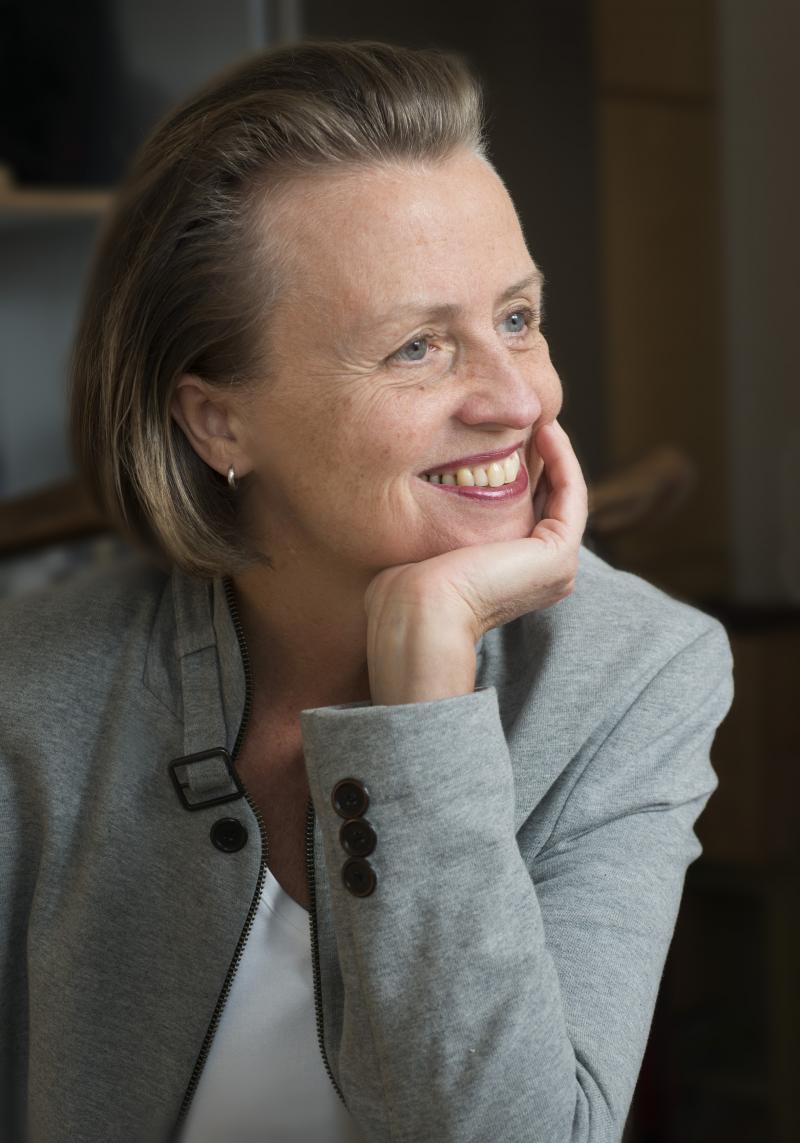
Cecilie Ore studied piano at the Norwegian Academy of Music and in Paris (1974-81). After these studies she subsequently turned to studying composition at the Institute of Sonology in Utrecht and with Ton de Leeuw at the Sweelinck Conservatory in Amsterdam (1981-86).
Calliope for female voice (1984), Helices for wind quintet (1985), Porphyre for orchestra (1986) and Etapper electroacoustic music (1988) are all works from her early years as a composer. During this period Ore won international recognition for several of her electroacoustic works. She was awarded first and second prize at the International Rostrum for Electro-Acoustic Music in 1988 for Etapper. The same year she also received the Norwegian Society of Composers' "Composition of the Year" award for her orchestra piece Porphyre, as well as the Norwegian State Guarantee Income for Artists.
Towards the end of the 80's Ore became increasingly involved with investigating the concept of time in music; an involvement that resulted in the tetralogy Codex Temporis. Codex Temporis contains the following four titles: Praesens Subitus (for string quartet, 1989), Futurum Exactum (for string ensemble, 1992), Erat Erit Est (for sinfonietta, 1991) and Lex Temporis (for string quartet, 1992). These ideas were further developed in the orchestra piece Nunc et Nunc commissioned by the BBC Symphony Orchestra in 1994.
The tetralogy Tempura Mutantur is also a continuation of ideas from Codex Temporis. The titles are: Ictus (for 6 percussion players, 1997), Semper Semper (for saxophone quartet, 1998), Non Nunquam (for string trio, 1999) and Nunquam Non (for ensemble, 1999). She ends this instrumental period with a trilogy inspired by cloud formations: Cirrus (for string quartet, 2002), Cirrocumulus (for wind trio, 2002) and Cirrostratus (for sinfonietta, 2004). As in Codex Temporis the point of departure is a string quartet triggering the formal idea for the succeeding pieces.
After the year 2000, Ore starts working with vocal music again. The music-dramatic work: A – a shadow opera was premiered at the Ultima Festival 2001. In 2003 she composed Schwirren for the vocal ensemble Nordic Voices. And in 2005 she realized the sound-installation, Lux Illuxit, involving vocal material from The National Archives of Norway.
Ore was awarded the Arne Nordheim Composers Price for 2004.
Since year 2000 she has worked on text-based projects with an increasingly critical view on society. The themes range from death penalty to freedom of speech. In 2008 her chamber opera on death penalty, Dead Beat Escapement, was commissioned by and first performance at the Norwegian National Opera in Oslo. In 2013 she wrote Come to the Edge!, a choir piece about freedom of speech. It was commissioned by BBC Radio 3 and Huddersfield Contemporary Music Festival for the BBC Singers. The same year a new video version of A. – a shadow opera was premiered at the same festival. Two new vocal pieces were premiered at Oslo Grieg Festival in 2014: Toil & Trouble, composed for Nordic Voices and Who do you think you are? written for Eir Inderhaug. The latter is a political stand-up romance for solo female voice. Her opera Adam & Eve – a Divine Comedy was premiered during the International Festival in Bergen, 2015.
Cecilie Ore was awarded the Lindeman Prize in 2015.
In the Vatican-trilogy with the titles: Dead Pope on Trial!, The Pregnant Pope! and The Fig Leaf Campaign! (2016-18), she composes three vocal pieces based on bizarre stories from the history of the Vatican.
Cecilie Ore was awarded the Edvard Prize for WaterWorks in 2019. She was awarded the Norwegian Publisher Award for the H2O-trilogy in 2023.
In the works Katsu! (for voice and alto saxophone, 2021), Hototogisu! – a cuckoo cries (for brass quintet, 2022) and Lex Naturae (for percussion trio 2023), the instrumental music is combined with vocal and text-based ideas.
Ore worked as a guest professor at The Norwegian Academy of Music in Oslo from 2020-21. She continued teaching at the same place from 2021-23.